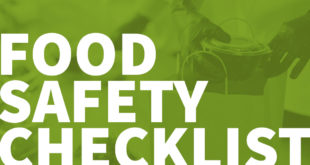 Of course, all the work you’ve put into the first 6 principles of HACCP won’t do you any good at all if you don’t have accurate records. In the event that your business is implicated in a food borne illness outbreak, all of your HACCP efforts only help protect you if you have clear, accurate records of your food preparation process, and you are able to prove active managerial control.
Of course, all the work you’ve put into the first 6 principles of HACCP won’t do you any good at all if you don’t have accurate records. In the event that your business is implicated in a food borne illness outbreak, all of your HACCP efforts only help protect you if you have clear, accurate records of your food preparation process, and you are able to prove active managerial control.
You should maintain records of at least these 5 areas to help you manage your HACCP program:
- Prerequisite Program records like handwashing, equipment sanitization, etc.
- Monitoring records– temperature logs should record the monitoring process at each CCP in your program.
- Corrective action records– when corrective action needs to be taken because a Critical Limit is not met, this action should be carefully documented, not only so that the process can be adjusted to avoid future corrective actions, but so that you can protect your business from liability should an outbreak coincide with the action.
- Verify and validate record keeping. Many people in your restaurant will be keeping records. As we discussed previously, regular verification and quality control needs to take place to make sure temperatures are taken and recorded accurately.
- Record equipment calibration. Thermometers and other equipment you use to measure Critical Limits needs to be calibrated on a set schedule. Make sure this schedule and a record of the calibration is carefully maintained.
When you first start keeping records, the frequency you record critical information should be high. This allows you to spot problems in your new HACCP program quickly. As you master the processes laid out in the first 6 Principles of your program, record keeping can be modified to promote efficiency.
Remember that these are just guidelines! Every restaurant is different and has unique situations and requirements when it comes to planning and managing an effective HACCP program. Consult with your local Board of Health to make sure that the unique situations you encounter in your HACCP program still meet food safety guidelines and are helping you accomplish your ultimate goal: successfully controlling food borne illnesses in your establishment.
 Corner Booth Blog | TundraFMP Restaurant Supply, News & Equipment Blog
Corner Booth Blog | TundraFMP Restaurant Supply, News & Equipment Blog



